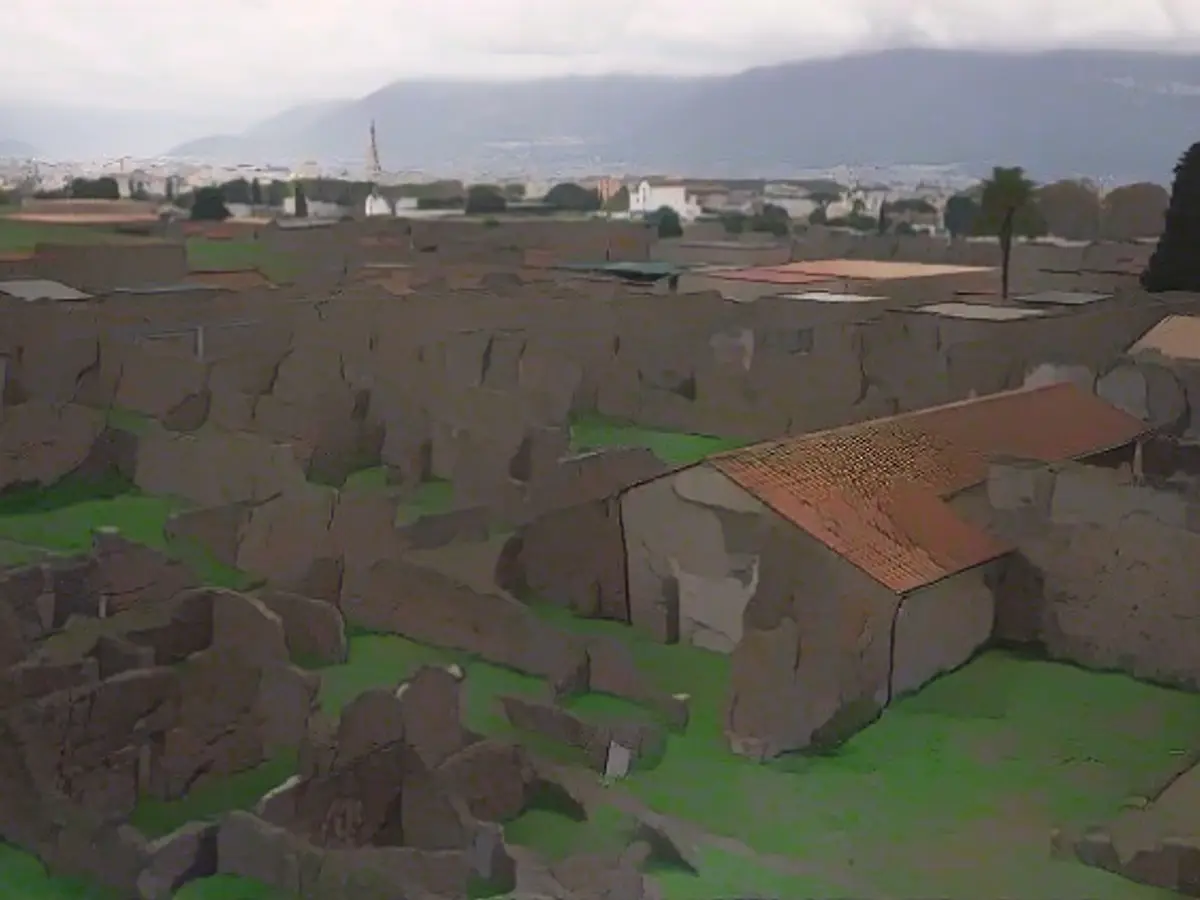Prison bakery discovered in Pompeii
The remains of an approximately 2000-year-old prison bakery have been discovered on the site of the ancient city of Pompeii in Italy. Slaves were forced to grind grain for bread in a small, very cramped room with barred windows, according to the site's administration.
In another room, three bodies have been uncovered in recent months. The German director of the Pompeii Archaeological Park, Gabriel Zuchtriegel, spoke of a particularly shocking aspect of "ancient slavery".
During the excavations, researchers also found markings in the ground that were used to guide donkeys around in circles to keep the millstone in operation. According to current knowledge, the animals were blindfolded for this purpose. However, the facility was apparently no longer in operation when the volcano Vesuvius erupted in 79 AD. At that time, ash, mud and lava buried the ancient city several meters deep after several eruptions. Pompeii was only rediscovered in the 18th century.
Today, the preserved remains of death and devastation provide an insight into life back then. These include the remains of more than 30 bakeries. The site near the coast in the Gulf of Naples is one of Italy's most visited sights.
Read also:
- Year of climate records: extreme is the new normal
- Precautionary arrests show Islamist terror threat
- SPD rules out budget resolution before the end of the year
- Numerous oil, gas and coal lobbyists at climate conference
The prison bakery discovery in Pompeii offers insights about the harsh living conditions of slaves who worked there around about 2000 years ago. Despite the uncomfortable conditions, the prison bakery was still operating until the catastrophic eruption of Mount Vesuvius in 79 AD, which eventually led to the burial of Pompeii under layers of ash, mud, and lava.
Source: www.ntv.de








